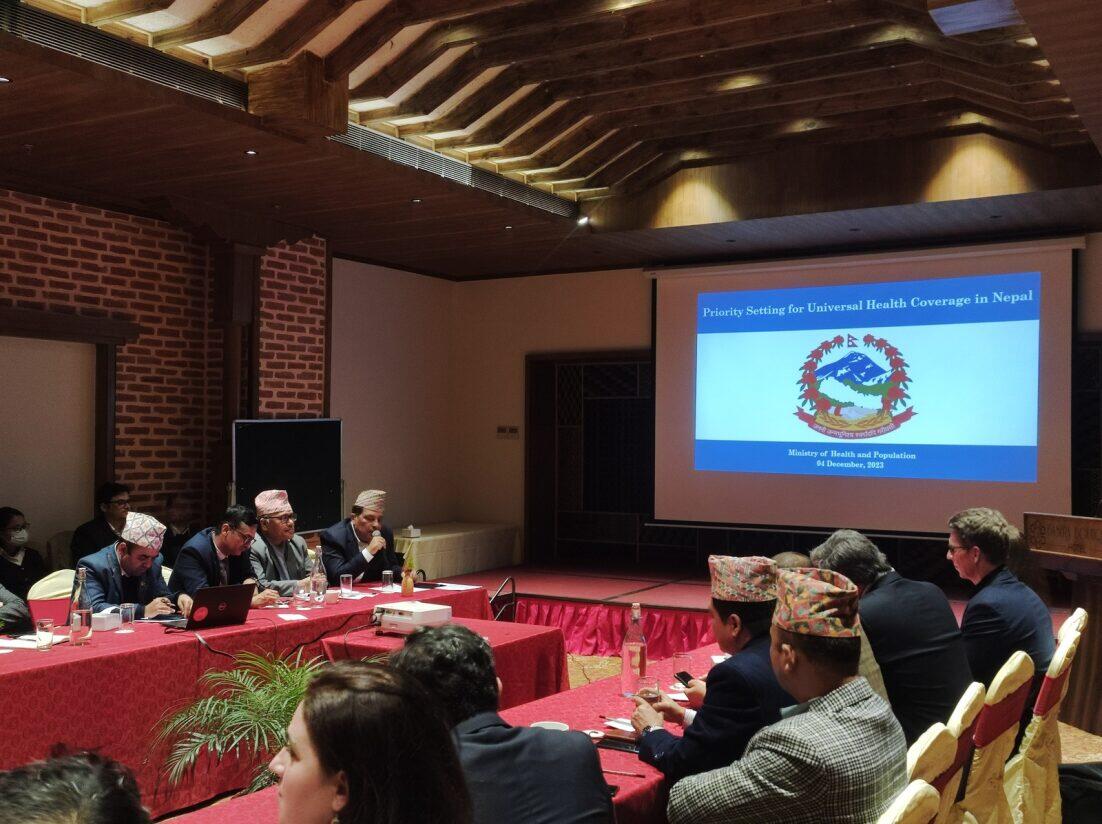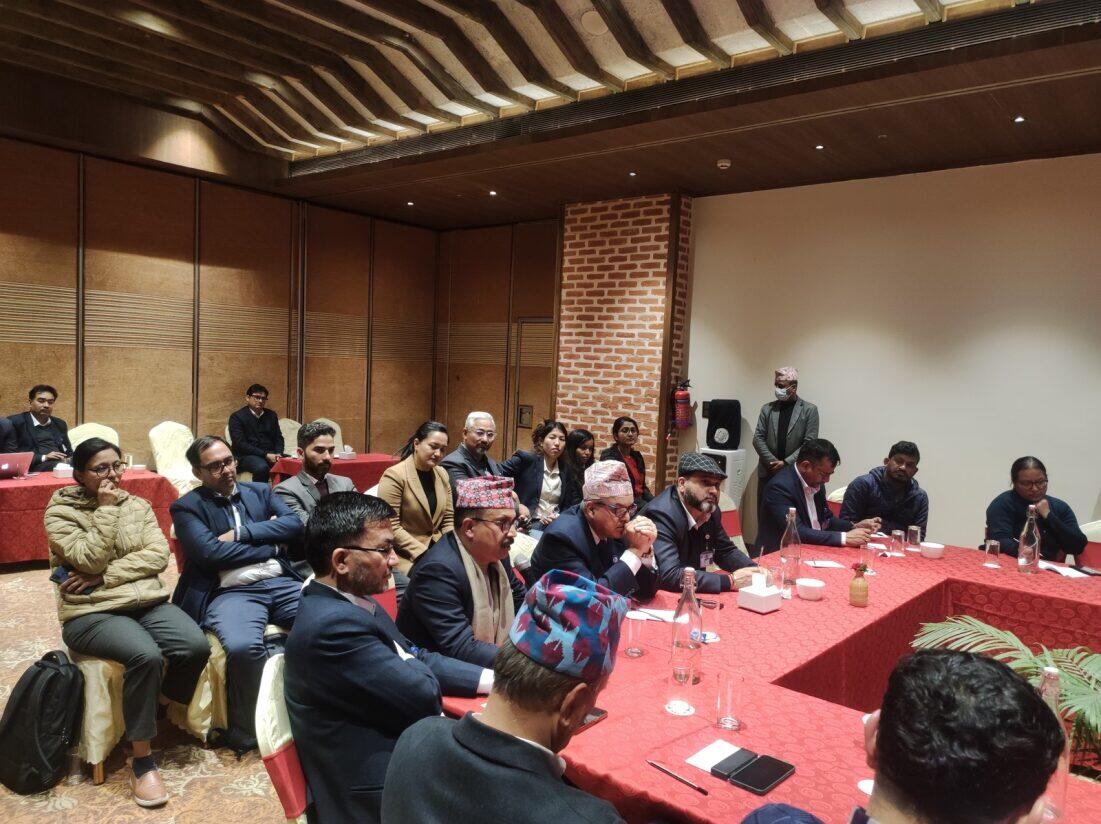Launch of the BCEPS Priority Setting for UHC project in Nepal
The Ministry of Health & Population (MoHP) in Nepal inaugurated the BCEPS-supported 'Priority Setting for Universal Health Coverage (UHC) project' on December 04, 2023, marking a significant milestone in advancing healthcare strategies.

Main content
Inception workshop - Priority Setting for Universal Health Coverage (UHC) in Nepal
On December 04, 2023, the Ministry of Health & Population (MoHP) in Nepal organized an inception workshop of the BCEPS-supported ‘Priority Setting for Universal Health Coverage (UHC) project’. Held in Kathmandu, the event was chaired by Dr Roshan Pokhrel, Secretary of MoHP and witnessed the presence of dignitaries including high-level officials from MoHP, Norwegian Embassy, Nepal Health Research Council, representatives from WHO, UNICEF, Asian Development Bank, British Embassy Kathmandu (a part of Foreign, Commonwealth and Development Office), and participants from academia including Tribhuvan University, Kathmandu University, and Nepal Health Economics Association among others.
Over the forthcoming two years, the project will support MoHP in updating its health benefit packages with a set of prioritized interventions using a thorough process of economic evaluation and fairness. This initiative aligns with one of the strategies of Nepal’s National Health Financing Strategy 2023-2030 - strengthening health financing governance in Nepal.
The inception workshop started with a presentation from the MoHP. Dr Bhim Sapkota, Senior Public Health Administrator, MoHP, emphasized the crucial need to assess the cost-effectiveness of health system interventions. ‘We want to best utilize our resources for achieving desired outcomes,’ he further added during his presentation on MoHP’s existing priority-setting process and the plan to collaborate with BCEPS, UiB on initiating and institutionalizing priority setting exercise in the MoHP.
Kjell Arne Johansson, BCEPS Professor, highlighted the necessity of establishing a consensus to define priority-setting criteria. He stressed the utilization of evidence-informed tools, specifically introducing the FairChoices DCP Analytics Tool tailored to Nepal’s health system context
‘It is not only about cost-effectiveness analysis, but we also need to consider equity, otherwise, we would leave the worse-off population behind,’ Professor Kjell Arne added.
Formation of Governance Structure and the expectations from the project
Dr Bikash Devkota, additional health secretary, informed the attendees about the formation of a Steering Committee and a Technical Working Group to spearhead the priority-setting initiative. He elaborated on the establishment of different thematic groups focusing on communicable diseases, non-communicable diseases (NCDs), and reproductive, maternal, and newborn child & adolescent health and nutrition (RMNCAH-N). Additionally, cross-cutting groups concentrating on epidemiology & demography; interventions mapping & coverage; and health financing & cost of interventions would be formed to materialize the outlined plan. Dr. Devkota expressed optimism regarding the project’s potential to enhance health outcomes and equity.
Following the technical presentations, Dr. Pokhrel initiated the post-discussion by addressing the complex landscape of prioritization health system interventions, ranging from immunization to managing disease outbreaks and mental health issues. He emphasized the challenge of discerning these priorities effectively. Dr Pokhrel underscored the urgent need to improve coverage of basic health services, strengthen health insurance mechanisms, eliminate overlapping interventions, and reduce out-of-pocket expenses.
Austen Davis, Senior Advisor at NORAD, highlighted the need to define the value of investing in the health sector. He advocated for leveraging tools to advocate for increased investments in the health domain. Kristine Storholt, the Deputy Head of Mission, Royal Norwegian Embassy commended the Government of Nepal for its intensified focus on equity and implementation of federalism. She shared that while the project does not offer a silver bullet, the decision-making lies within the government to identify what strategies prove effective.
During the open discussion, participants shared their concerns regarding the reliability of cost-effectiveness data, the criteria used for scoring interventions, financing mechanisms for prioritized interventions, strategies for improving fiscal space, and the pivotal role of inter-sectoral coordination in the priority-setting process.
Next Steps
The BCEPS team will liaise and work closely with the governance structure to take forward the outcomes of the inception workshop and engage with the MoHP and other relevant stakeholders to initiate and institutionalize an evidence-informed priority-setting (EIPS) process within the MoHP.

